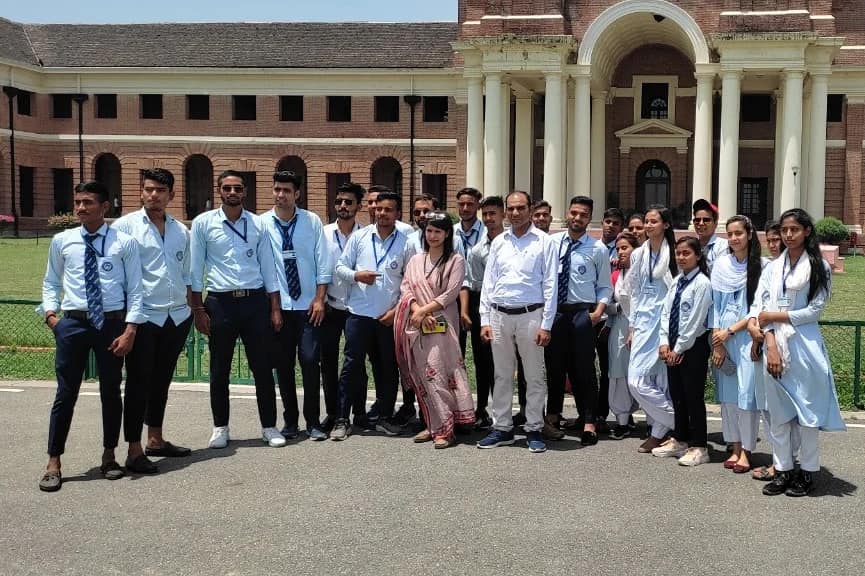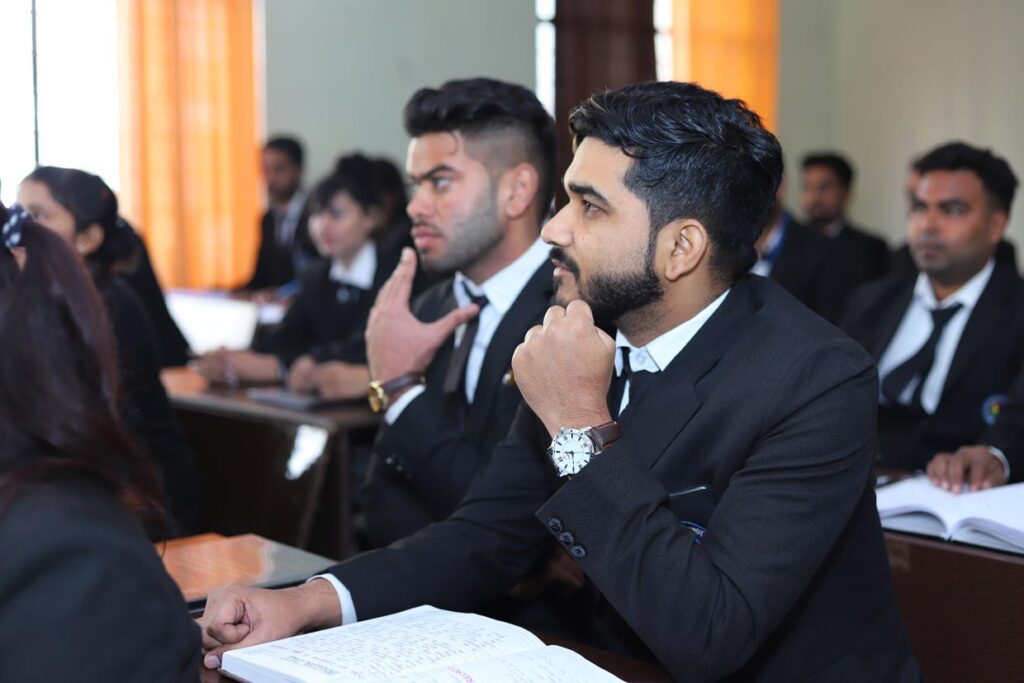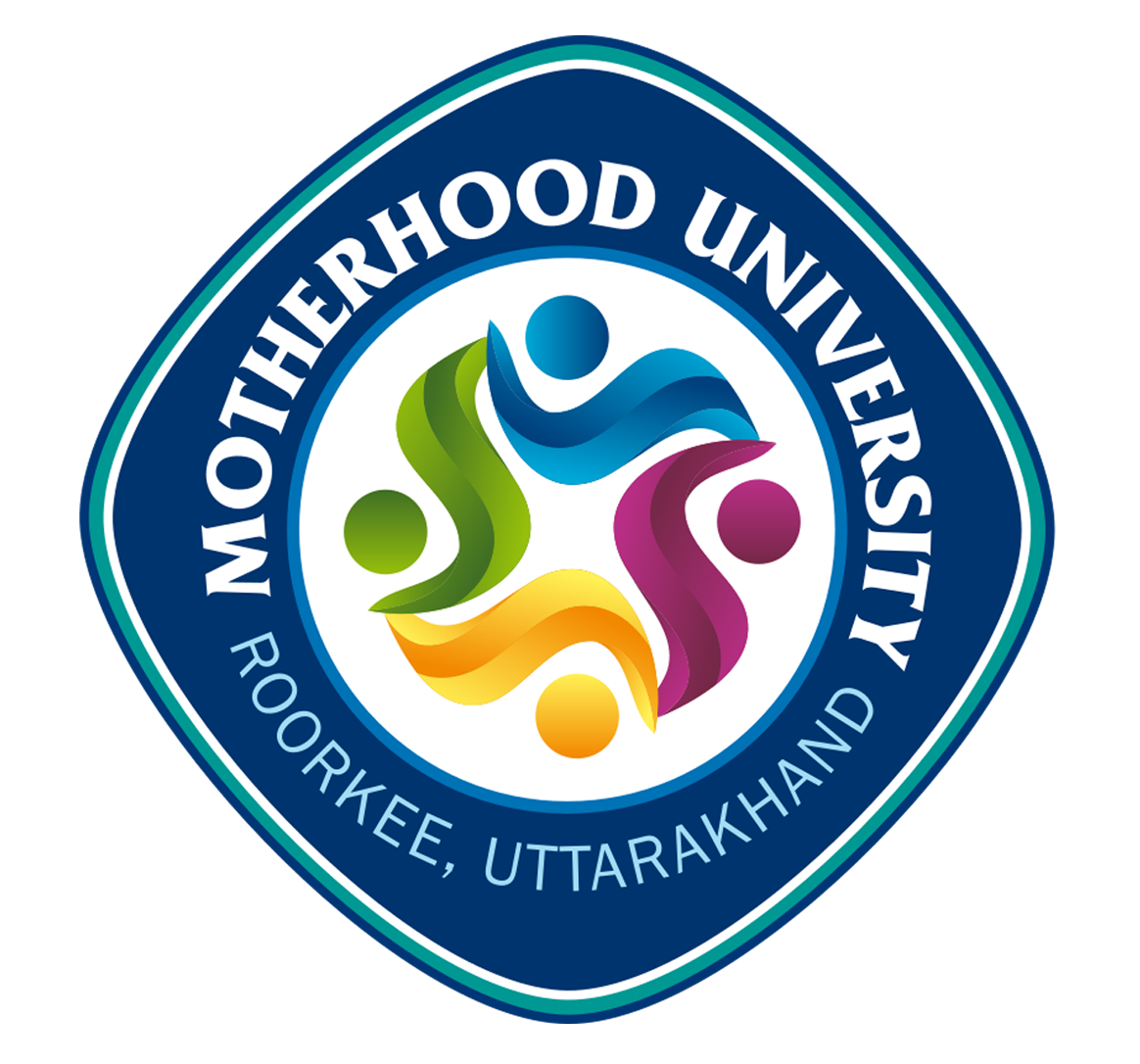Faculty of Arts, Humanities & Social Sciences

Dean’s Message
The Faculty of Arts, Humanities and Social Sciences at Motherhood University is a place where great conversations become innovative concepts, where you’ll collaborate with fellow students and faculty who are as passionate about your field as you are.
We are a community of scholars devoted to cutting-edge scholarship and research that will expand your thinking and build a strong foundation to pursue a career in the arts, humanities and social sciences.
With the participation of all in this Faculty, including the ones who teach, research, study,and work, and supported by a culture of excellence we are reachable to find creative solutions that attracts those who look out for us and are passionate about learning and sharing.
PROF. (DR.) SHREEPAL CHAUHAN
DEAN
FACULTY OF ARTS, HUMANITIES & SOCIAL SCIENCES
Programs Available
FoAHSS, Motherhood University
B.A.
M.A.
Economics | Sociology | Political Science | English
Faculty of Arts, Humanities & Social Sciences
About
We offer various courses that encourage the spirit of enquiry and critical analysis of new categories of thought that connects individual experience to the wider social life. Committed to the pursuit of excellence in higher education, the department offers degrees at Bachelor, Masters and PhD levels in Political Science, Economics, Sociology. Department also taught communication skills to the students to improve their language skills. Various courses will help to the student to make a good human being, social worker, leader, writer in the society.
FACILITIES
In the pursuit of execellence the classrooms in the institution are highly education friendly. They are well lit and airy, supporting high concentration on the subject matter being taught by our expert faculties.The classrooms are designed for discussions, and nearly every classroom incorporates technology. Admission
Admission
Students do learn in traditional lecture halls, but classrooms even exist outdoors for some programs. Learning by doing means that classrooms simulate professional environments.
ACADEMIC STANDARDS
Whether students begin their undergraduate education and pursue a strong educational foundation or seek an advanced degree with a professional focus, MEP adhere to the highest standard of academic enterprise and innovation. True education these days is not only meant to attain information and knowledge, rather they are platforms for collaboration of thoughts and ideas. Our institution provides a platform that gives utterance to the thoughts of students, teachers and highlights the achievements and milestones covered by the institution.
TECH ASSISTED LEARNING
At MEP we are determined to scale our students performance up through our highly trained faculty members who have chosen technology a sure route for improving the students’ performance. At Mahaveer we ensure that best and modern state of the art teaching learning facilities and technologis are adapted and implemented.
PLACEMENTS
Placement, undoubtedly is one of the most important priorities for the college. We thrive to achieve maximum placements for students through dedication, attitude and complete involvement. The entire spectrum of academic activities is oriented to provide the best possible placement to the students, enhancing their exposure to the outside world and to act as an interface between the college and the prospective employers of repute. A full fledged training and placement cell works tirelessly to fulfil this very objective.
Bachelor of Arts
B. A.
Level: Degree
Program Duration: 3 Years ( 6 Semesters)
Eligibility: Passed 10+2/Intermediate in any discipline
Minimum Aggregate Score Requirement:
Gen/OBC/Minority-50 % | SC/ST- 45 %
Best in class infrastructure and facilities.

Program Overview

Master of Arts
A Master of Arts (M.A.) in English is a postgraduate degree that provides students with an in-depth understanding of English literature, language, and critical theory. This program not only enhances students' literary appreciation but also equips them with valuable skills for various professional paths.
An M.A. in Political Science offers numerous advantages and opens a broad spectrum of career opportunities in both the public and private sectors. The degree provides a deep understanding of political systems, governance, political theory, international relations, and policy analysis, preparing graduates for a variety of roles in government, international organizations, NGOs, academia, and more.
An M.A. in Economics offers a wide range of advantages and opens up diverse job opportunities.
An M.A. in Sociology offers several advantages and can lead to diverse job prospects.
Level: PG Degree
Disciplines: Economics | Sociology | Political Science | English
Program Duration: 2 Years | 4 Semesters
Eligibility: Graduation in Relevant Subject
Minimum Aggregate Score Requirement:
Gen/OBC/Minority-50 % | SC/ST- 45 %
Faculty of Arts, Humanities and Social Sciences
B.A.
REGISTRATION FEE
PROGRAM FEE / YEAR
PROGRAM FEE / YEAR FOR UTTARAKHAND RESIDENTS
EXAM FEE / YEAR
B.A. Hons.
REGISTRATION FEE
PROGRAM FEE / YEAR
PROGRAM FEE / YEAR FOR UTTARAKHAND RESIDENTS
EXAM FEE / YEAR
B.A. Hons. With Research
REGISTRATION FEE
PROGRAM FEE / YEAR
PROGRAM FEE / YEAR FOR UTTARAKHAND RESIDENTS
EXAM FEE / YEAR
M.A.
REGISTRATION FEE
PROGRAM FEE / YEAR
PROGRAM FEE / YEAR FOR UTTARAKHAND RESIDENTS
EXAM FEE / YEAR

Advantages
Advantages of an M.A. in Economics
- Deep Analytical and Quantitative Skills
- Comprehensive Understanding of Economic Principles
- Better Job Prospects
- Research and Analytical Expertise
- Potential for Higher Salaries
- Versatile Career Pathways
- Global Perspective
- Preparation for Further Study
Advantages of M.A. in English
1. Comprehensive Literary Knowledge
• In-Depth Study of Literature • Critical Analysis Skills
2. Enhanced Communication Skills
• Effective Writing • Public Speaking and Presentation Skills
3. Research and Analytical Skills
• Research Methodologies • Data Interpretation
4. Interdisciplinary Learning
• Connection to Other Disciplines • Cultural Awareness
5. Creative Expression
• Opportunities for Creativity • Fostering Imagination
6. Teaching and Academia Opportunities
• Eligibility for Teaching Roles • Pursuit of Higher Studies
7. Career Flexibility
• Diverse Career Paths • Specialization Options
8. Networking Opportunities
• Professional Connections • Access to Alumni Networks
9. Global Opportunities
• International Recognition • Pursuit of International Certifications
10. Cultural and Social Impact
• Promoting Literacy and Culture • Advocacy for Social Issues
Advantages of an M.A. in Political Science
1. Deep Understanding of Political Systems
2. Development of Analytical and Critical Thinking Skills
3. Enhanced Research Skills
4. Policy Formulation and Evaluation
5. Improved Communication and Public Speaking Skills
6. Opportunities for Career Advancement
7. Global Perspective
8. Versatile Career Paths
Advantages of an MA in Sociology
1. Comprehensive Understanding of Society
2. Critical Thinking and Analytical Skills
3. Interdisciplinary Approach
4. Research Opportunities
5. Strong Communication Skills
6. Social Awareness and Advocacy

Job Options
Job Opportunities After an M.A. in Economics
1. Economic Consultant
2. Financial Analyst
3. Policy Analyst
4. Data Scientist/Analyst
5. Public Sector/ Government Roles
6. International Organizations (UN, World Bank, IMF)
7. Academia/Teaching
8. Market Research Analyst
9. Corporate Strategy/Management
10. Banking and Investment
11. Risk Analyst
12. Development Economist
13. Private Sector Economist
14. Environmental Economist
Job Prospects for M.A. in English Graduates in India
An M.A. in English opens up numerous career opportunities across various sectors. Below are some prominent job roles and sectors for graduates:
1. Teacher/Lecturer
2. Content Writer
3. Editor
4. Copywriter
5. Research Associate
6. Journalist
7. Public Relations Officer
8. Literary Agent
9. Corporate Trainer
10. Scriptwriter
11. Social Media Manager
12. Translation Specialist
13. Cultural Critic
14. Academic Writer
15. Grant Writer
16. Instructional Designer
17. Proof-reader
18. Event Coordinator
19. Human Resources Specialist
20. Freelancer/Consultant
Job Opportunities After an M.A. in Political Science
1. Public Policy Analyst:
2. Government Official:
3. Political Consultant/Strategist:
4. Diplomat/Foreign Service Officer:
5. International Organizations and NGOs:
6. Political Analyst:
7. Legislative Assistant:
8. Lobbyist:
9. Political Journalist/Reporter:
10. Academic/University Professor:
11. Election Analyst:
12. Researcher/Think Tank Expert:
13. Human Rights Officer:
14. Corporate Social Responsibility (CSR) Officer:
15. Urban Planner/Community Development Specialist:
16. Intelligence Analyst:
Job Prospects with an MA in Sociology
1. Research Analyst
2. Social Worker
3. Policy Analyst
4. Community Organizer
5. Market Research Analyst
6. Human Resources Specialist
7. Educator or Lecturer
8. Non-Profit Sector
9. Urban Planner
10. Journalism and Media
Evaluation Scheme & Syllabus
Faculty of Arts, Humanities & Social Sciences
B. A.
M.A. Economics
M.A. English
M. A. Political Science
M.A. Sociology
Fee Structure
Faculty of Arts, Humanities and Social Sciences
B.A.
REGISTRATION FEE
PROGRAM FEE / YEAR
PROGRAM FEE / YEAR FOR UTTARAKHAND RESIDENTS
EXAM FEE / YEAR
B.A. Hons.
REGISTRATION FEE
PROGRAM FEE / YEAR
PROGRAM FEE / YEAR FOR UTTARAKHAND RESIDENTS
EXAM FEE / YEAR
B.A. Hons. With Research
REGISTRATION FEE
PROGRAM FEE / YEAR
PROGRAM FEE / YEAR FOR UTTARAKHAND RESIDENTS
EXAM FEE / YEAR
M.A.
REGISTRATION FEE
PROGRAM FEE / YEAR
PROGRAM FEE / YEAR FOR UTTARAKHAND RESIDENTS
EXAM FEE / YEAR





